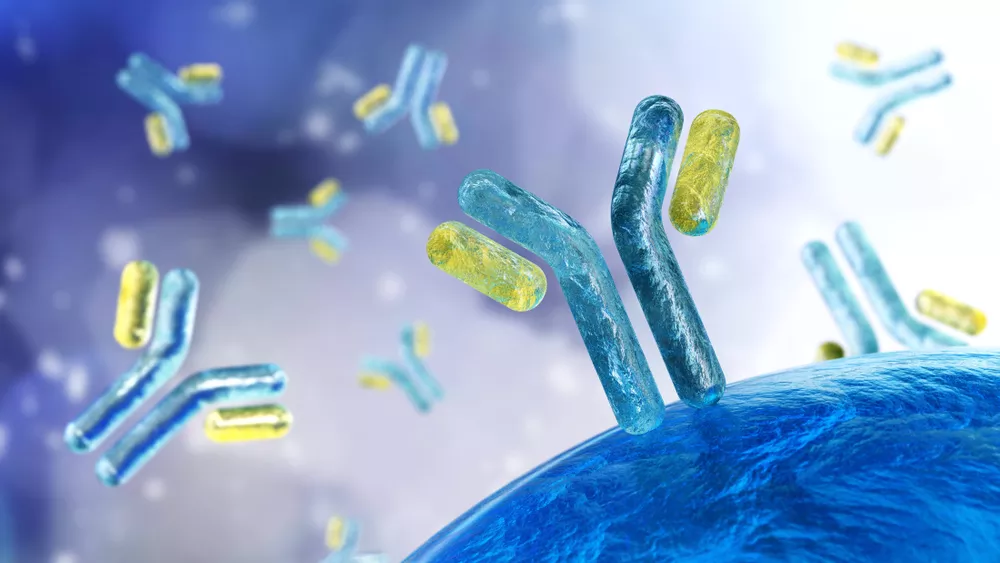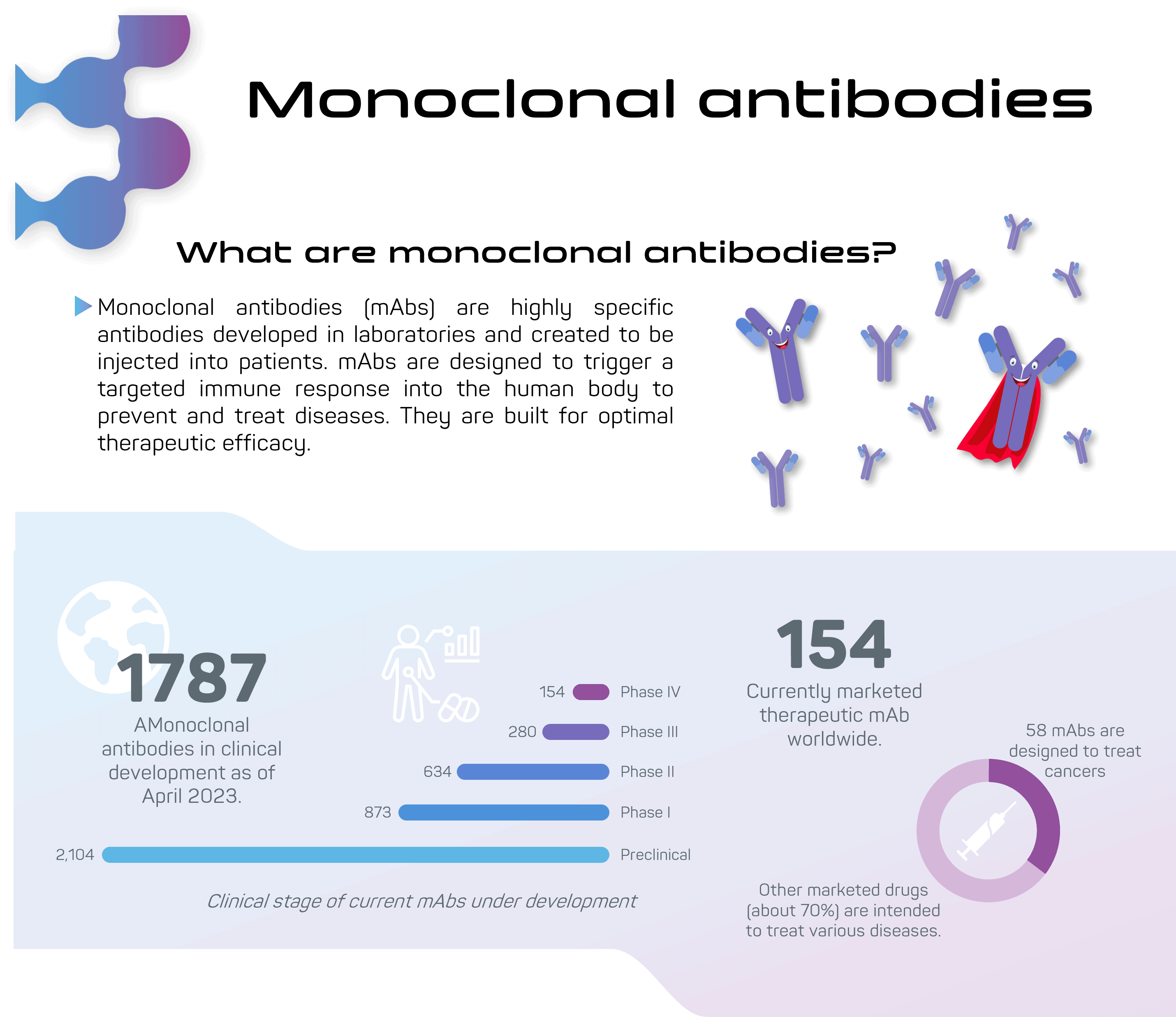Monoclonal antibodies (mAbs) constitute a significant achievement in pharmacology over the past three decades. Here are some answers to common questions: what are monoclonal antibodies, and how are they used as innovative therapies?
Introduction to mAbs
The human body naturally produces antibodies as part of our immune system’s protection from external pathogens. These antibodies are produced by lymphocytes B, also known as white blood cells.
Monoclonal antibodies (mAbs) are recombinant proteins developed in the laboratory or by pharmaceutical companies to mimic the body’s natural immune system. They are designed to be injected into patients to trigger a targeted immune response in the human body for prevention and treatment of diseases. Since they are highly specific, they have an optimal therapeutic efficacy.
What are the clinical applications of monoclonal antibodies?
mAbs are used in the treatment of various diseases including cancer, autoimmune diseases, and viral infections. They are often used in combination with other therapies such as chemotherapy and radiotherapy to improve treatment effectiveness. mAbs are also used for diagnosing certain conditions as they can bind to specific proteins and be detected in the blood. Monoclonal antibodies are undoubtedly one of the most significant advancements in the treatment of cancer and many other diseases.
Although monoclonal antibodies are very promising, there are limits to their effectiveness:
- mAbs only work for diseases for which specific proteins to target exist,
- Monoclonal antibodies-based therapies can be (highly) expensive, which can limit their use in some countries,
- Monoclonal antibodies can also (like all drugs) cause side effects, such as allergic reactions. However, these effects are generally less severe than those associated with other cancer treatments.
How do monoclonal antibodies work?
mAbs are laboratory-produced proteins that target specific receptors on the surface of human cells. Monoclonal antibodies are designed to have an effect on the body in different ways:
- They can target specific cells by:
- Flagging human cells. Some immune system cells depend on antibodies to locate their target. Therefore, a therapeutic approach can be to develop an antibody which exclusively targets specific cells, helping our immune system better detect and destroy them,
- Directly attacking cancer cells. Some monoclonal antibodies may attack the cell directly. When these antibodies attach to a cell, a series of events inside the cell cause it to self-destruct or trigger the immune system response that destroys the cancer cell membrane.
- They can target specific cell environments by:
- Blocking cell growth. For example, monoclonal antibodies may be used to block the connection between a cancer cell and proteins that promote cell growth.
- Preventing blood vessel growth. This strategy can be used to stop the blood supply to cancer cells,
- They can deliver a treatment. Because of a monoclonal antibody’s unique ability to bind to a cancer cell, the antibody can be engineered as a delivery vehicle for other treatments. Nowadays antibodies are used to deliver:
- Radiation treatment,
- Chemotherapy.
- They can enhance the immune system by:
- Binding targeted cells and immune cells together. Binding to both targeted cells and immune cells. Some therapeutic approaches combine two monoclonal antibodies, one that attaches to the targeted cell and one that attaches to a specific effector of the immune system. This connection promotes the immune system attack on the targeted cells, such as cancer cells,
- Blocking immune system inhibitors. The human body keeps the immune system from becoming overactive by producing proteins (inhibitors) that control the activity of immune cells. mAbs can be engineered to interfere with this process.
- They can target specific cells by:
What you should remember about mAbs
Monoclonal antibodies are a therapeutic achievement for the treatment of various diseases, including cancer. They are designed to specifically target diseased cells while minimizing side effects on healthy cells. Furthermore, it is important for healthcare professionals and researchers to continue exploring the potential applications of mAbs in order to improve their effectiveness and accessibility for patients worldwide.
mAbs are a major breakthrough in medicine, offering patients with serious illnesses a glimmer of hope for a healthier future. Therapeutic mAbs have revolutionized the treatment of many diseases and continue to represent a constantly evolving field of medical research and innovation.





